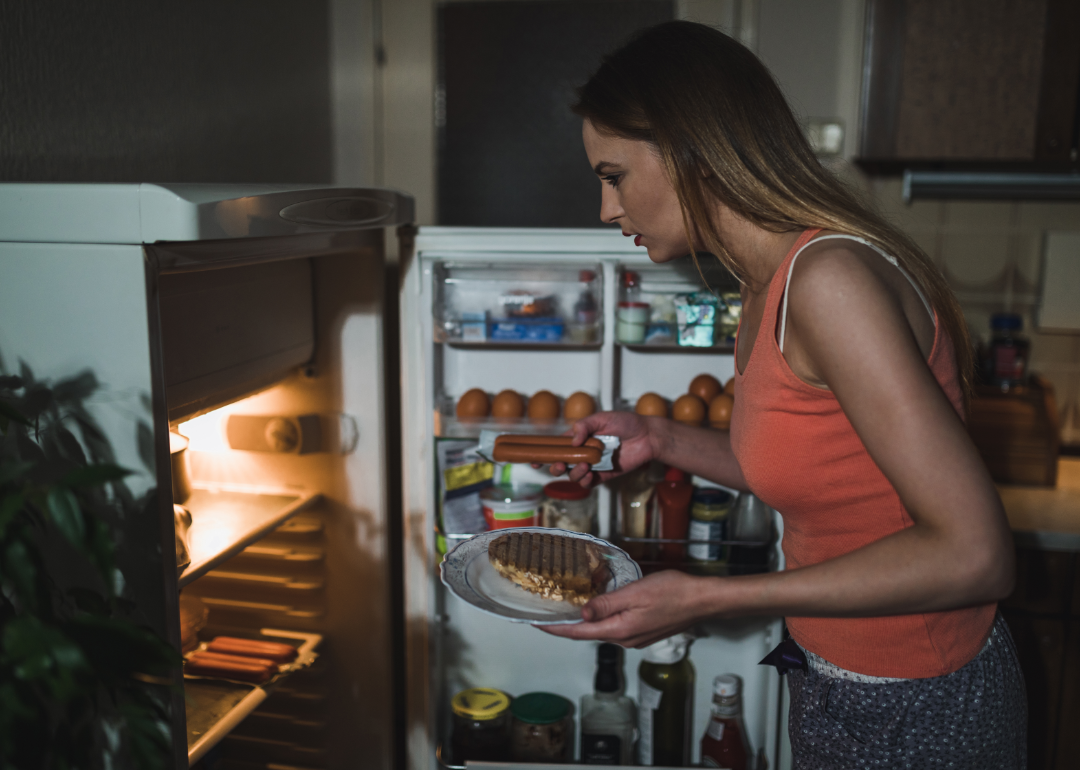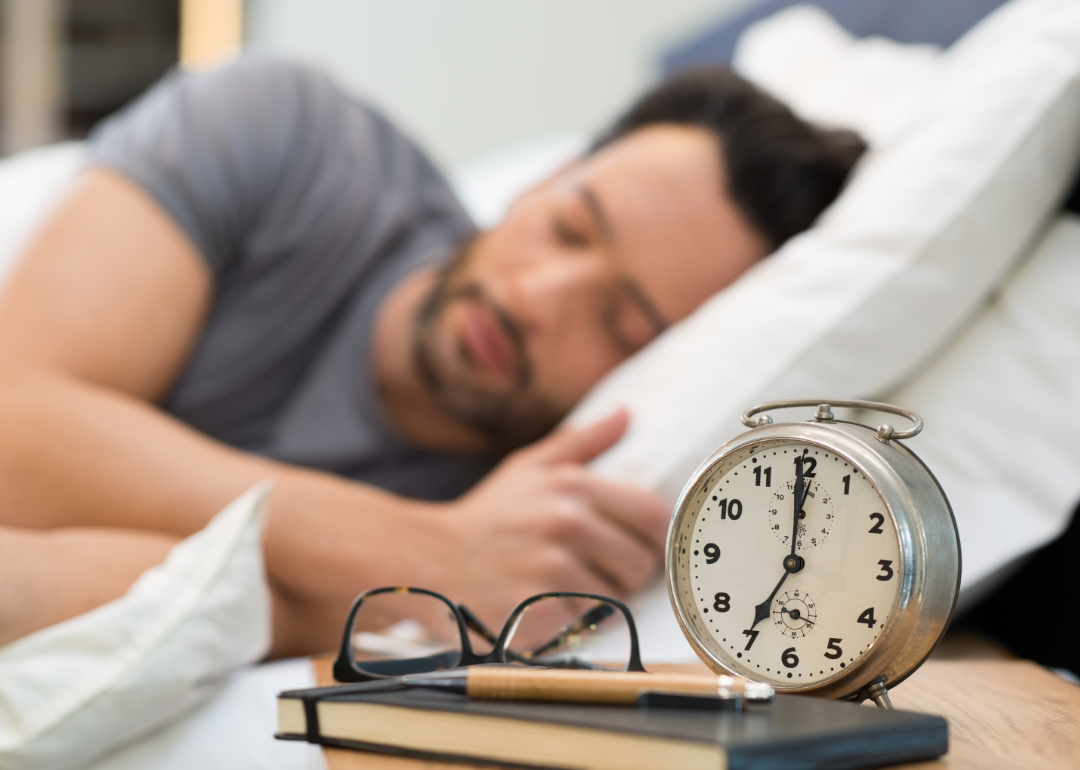How your eating habits could be affecting your sleep
Published 5:00 pm Monday, October 31, 2022
Canva
How your eating habits could be affecting your sleep
Improving your health starts with a simple step: getting the right amount of sleep.
Sleep is crucial for restoring the body’s energy and maintaining immune health. While sleep specialists recommend getting at least seven or more hours of nightly sleep, the Centers for Disease Control and Prevention reports only 1 in 3 adults consistently gets sufficient rest. Perhaps surprisingly, what you eat can directly affect how much and well you sleep.
Sunday Citizen identified how eating habits could influence sleep quality by researching scientific literature about food and nutrition and the connection to sleep patterns.
Studies have shown that inadequate sleep can be linked to cravings for sweet and salty, high-calorie foods and may put individuals at higher risk for chronic medical conditions such as heart disease, Type 2 diabetes, and depression. Some health experts have also suggested that healthy food choices can make a difference. For example, some nutritionists note that foods such as almonds could improve sleep quality—they contain magnesium, which can decrease stress levels that may disrupt sleep. But while sleep quality and nutrition are closely correlated, remember that there are challenges in analyzing the direct causation. Results may vary from person to person and as with anything medical-related, it’s essential to talk with a medical professional.
![]()

Canva
Chemicals like caffeine and alcohol can interrupt sleep patterns
Coffee may be the ideal beverage to help you get started in the mornings, but consuming caffeine later in the day can cause insomnia. Caffeine inhibits adenosine, a sleep-promoting receptor. It takes four to six hours for the body to metabolize what’s been ingested, according to the FDA, which is why caffeine at night can keep you awake longer.
Alcohol may immediately promote relaxation, but excessive consumption before bedtime can lead to sleep disruptions and poor sleep quality. It’s been linked to snoring and worsened sleep apnea, a severe sleeping disorder that can hinder breathing.

Canva
Eating too close to nighttime can interrupt the circadian rhythm
The body’s circadian rhythm serves as an internal clock for your organs, hormones, energy regulation, and immune system. The brain receives information based on the environment (i.e., sunlight vs. nighttime), which triggers certain hormones and the body’s sleep-wake pattern.
Eating sends signals from the brain to the digestive system based on external factors, guiding the body on the “correct” time to be awake. The circadian rhythm produces “feedback loops” that are completed within a 24-hour cycle and also regulate your metabolism, so when you eat can be just as important as what you eat, especially when trying to maintain a certain weight.

Canva
Large meals right before bed can be tough on digestion
Late-night eating can cause digestive issues like acid reflux. It can also raise your blood sugar, increasing your risk of developing Type 2 diabetes. Having large meals before bedtime has also been associated with weight gain. Blood sugar levels can fluctuate while you doze, and studies have shown that nighttime eating can impair the ability to process glucose in the body.

Canva
More nutritious food can lead to more restful sleep
Nutrition plays a vital role in sleep quality. A balanced meal of fruits and vegetables helps promote healthy body weight and restful sleep.
In a 2016 study published in the Journal of Clinical Sleep Medicine, eating foods low in fiber and high in saturated fat and sugar was linked to “less restorative sleep.” Meals high in carbohydrates and high glycemic indexes (a value used to gauge how specific foods can raise blood sugar levels) also affect energy and sleep quality. A high-carb diet is associated with more sleep disruptions and reduced deep sleep.

Canva
Insufficient sleep can influence food choices
Generally, people are more inclined to make unhealthy food choices when they don’t get enough sleep. This is because inadequate sleep can cause hormonal changes that boost cravings for foods high in fat and sugar and even increase abdominal fat.
A 2012 study found that when women experience short sleep time, levels of GLP-1, a hormone that tells your stomach when you’re full, are reduced. For men, inadequate sleep causes the hormone ghrelin to spike, which boosts hunger pangs. Simply put, improving sleep habits can promote healthier food choices.
This story originally appeared on Sunday Citizen and was produced and
distributed in partnership with Stacker Studio.






